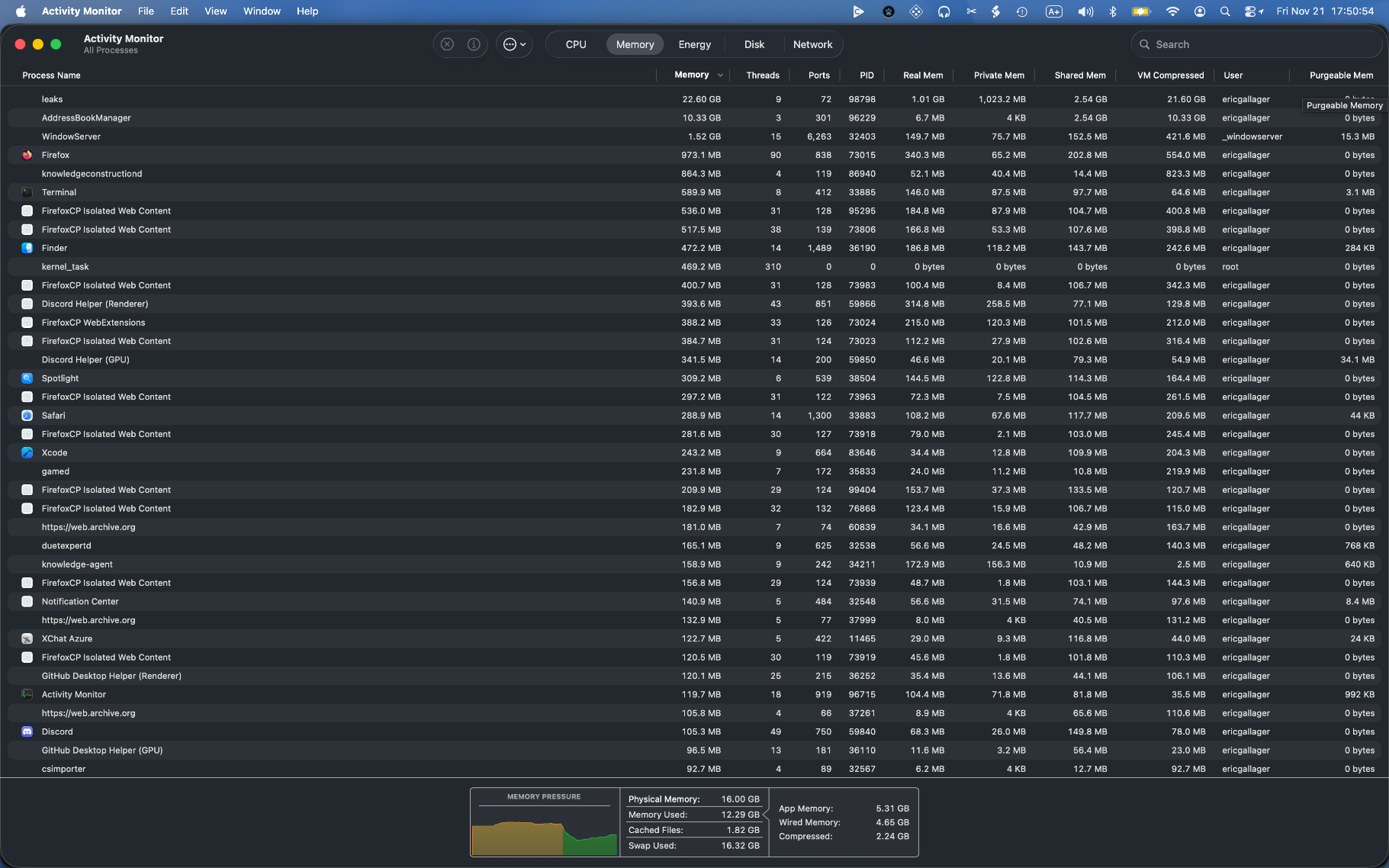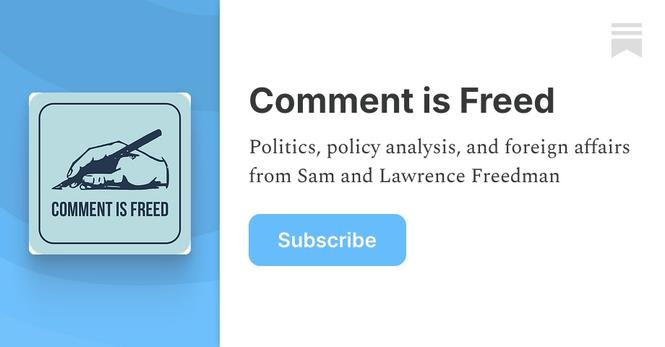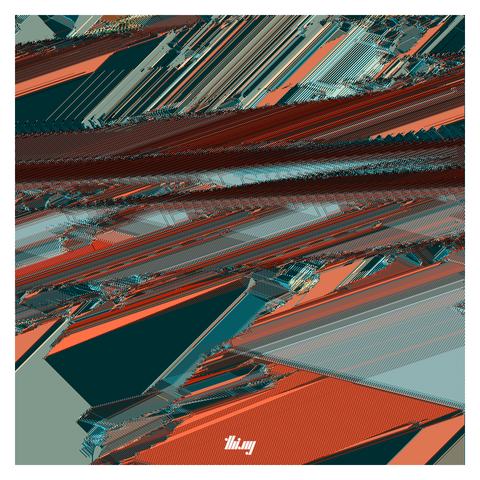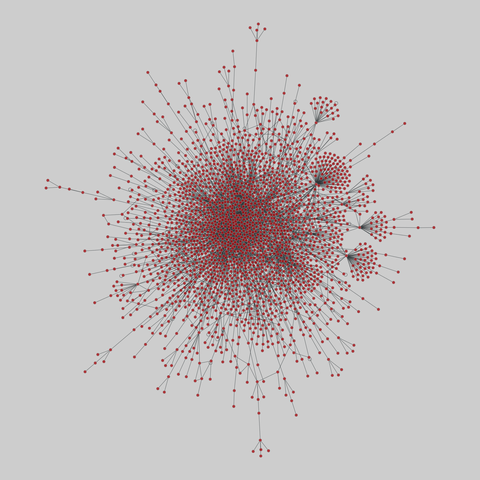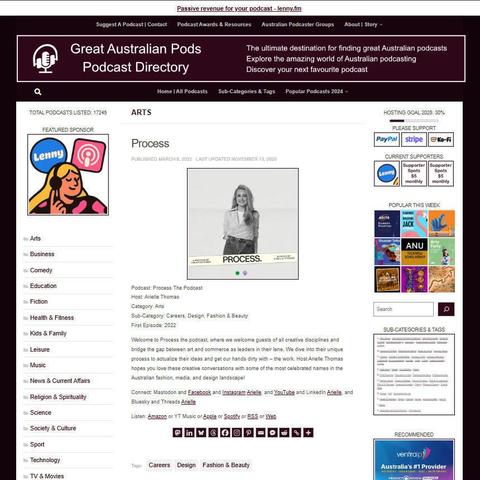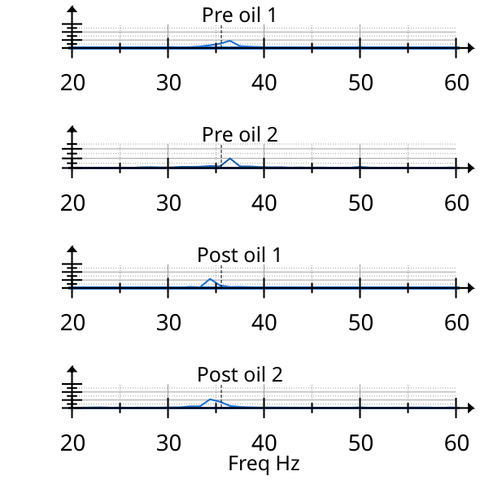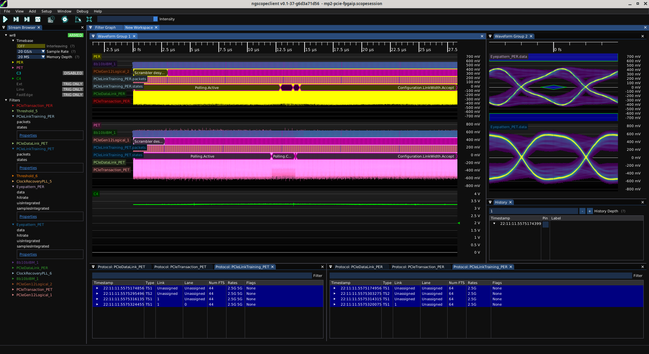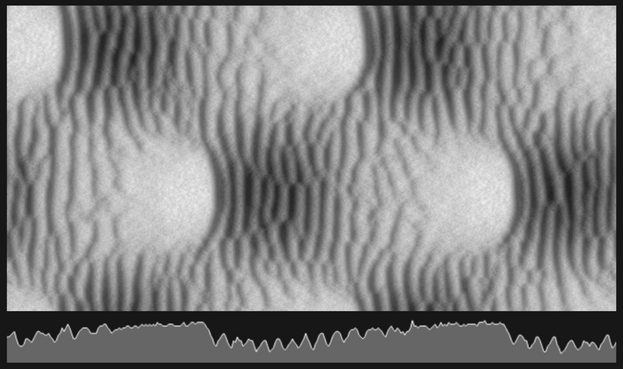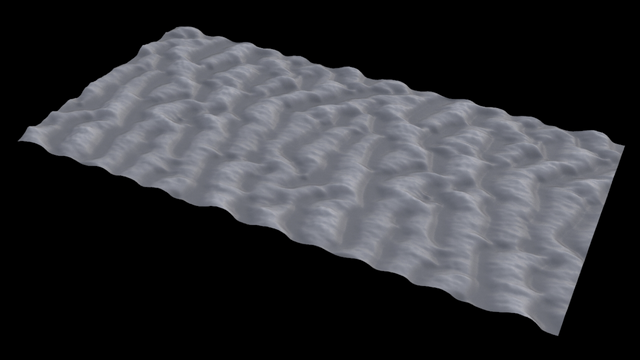2025-11-21 23:03:57
2025-11-21 23:03:57
2025-12-22 13:01:18
Investigation: in 22 US states, Uber approves drivers with many types of convictions, such as violent felonies, that are over seven years old to keep costs low (Emily Steel/New York Times)
https://www.nytimes.com/2025/12/22/business/uber-background-chec…
2025-12-22 19:17:13
I struggle to process the fact that Todd Blanche gave my husband his very first job offer in law.
(Yes, THAT Todd Blanche from the DoJ, deputy attorney general, the one who has been in the news for all kinds of terrible things he’s up to)
I went to a party with that guy 3 years ago! And now he’s doing increasingly cartoonish villain things every other week.
He seemed normal. Fun, actually.
And then months after he went to defend Trump as his personal lawyer and since then we’ve continued to be confused and disturbed.
We haven’t had any contact with him after he went to work for Trump, of course. But I can’t stop wondering how the fuck the person my husband worked with is the same person defending pedophiles. (Allegedly)
#USPol #ToddBlanche
2025-12-21 18:29:01
#AI is old news. Innovators must ask themselves: in 2026, how can I supercharge my productivity by incorporating labubus into my process?
2025-10-23 05:38:04
I had an XC7S25 in the pile, but it cracked pretty badly so I probably won't bother to image it. There's a second one still intact.
I really need a better process for dealing with fiberglass laminate substrates and getting dice off them. The dies on these packages were exposed for 15 minutes of cooking as I tried to get the acid to slowly penetrate the laminate, periodically removing it from the acid, cleaning, using a scalpel to scrape loose glass fibers off the surface, peel…
2025-12-23 00:06:20
Alien Enemies Act deportations violated due process, judge says : NPR
https://www.npr.org/2025/12/22/nx-s1-5652187/alien-enemies-act-deportations-case
2025-11-22 10:29:01
Nice annotation of the US-Russia "peace plan" with regard to Ukraine.
https://samf.substack.com/p/the-witkoff-dmitriev-peace-plan-annotated?utm_campaign=post&showWelcomeOnShare=true
2025-12-23 01:40:38
Federal judge says U.S. must give due process to deported Venezuelans (NPR)
https://www.npr.org/2025/12/22/nx-s1-5652187/alien-enemies-act-deportations-case
http://www.memeorandum.com/251222/p119#a251222p119
2025-11-22 07:41:17
Yesterday I was surprised that my blog post about IP tracking vs "conspiracy" my-phone-is-spying gets low but constant visits. - I reviewed it, corrected a couple of spelling mistakes and added some details.
After all, I'm just happy that I wrote this blog post. I often simply use the blog to "offload" a thought process out of my brain. No matter if someone reads it.
2025-12-22 18:00:03
Never thought I would find out the laundering process of Melania’s undergarments.
2025-11-18 12:45:28
For #TextureTuesday some more WIP snapshots of STRATA, a generative system I've been on/off working on since 2014 (in Clojure/TypeScript/Zig, originally for the cover design of HOLO magazine), loosely based on 1950s research/experiments by Barricelli, somewhat related to cellular automata and extended to use a different and much larger set of "reproduction/collision rules" f…
2025-12-21 20:13:18
The Seeing Center (2005.5)
⭐️⭐️⭐️⭐️ (183,746 reviews)
"This Best Picture-winning Tour de Force follows Moses Jackson, a good-hearted African-American PhD from Brooklyn, as he moves to a rural southern school to introduce some rowdy, expressive, redneck kids to the joys of learning, overcoming racial and economic divides in the process."
2025-12-23 04:34:47
I need a way to invite a user on #Threads to federate. I can imagine a process similar to how #bridgyfed does it: an account over there that sends invitations to users on demand from here, accompanied with a message explaining how to enable federation and the benefits of doing it. There are a number of technica…
2025-11-21 14:40:06
I keep thinking that I should text a friend of mine, tell him how much I've been writing, tell him I mentioned him in something I wrote. Then I remember he died like 4 years ago.
Edit:
It must have been more like 6 or something now that I'm thinking about it. It was part of the way through the first Trump administration. He would have really appreciated the way Trump is unraveling now. One of the last times we talked he was like... "You know man, You used to play 'Baby, I'm an anarchist' and I'd think... ' don't want to throw a brick through a Starbucks window. I kinda like their coffee sometimes.' But the way things have been going lately, I'm kind of looking around and thinking you might be right. Fuck Starbucks. Where's that brick?"
At least I won the SRV vs the Hendrix version of Voodoo Chile debate. Hendrix is just better.
We used to talk about music, especially punk (and rockabilly, and ska, and 2 tone), and poetry, and beer. He liked hop stupid, but I always thought it didn't have the body to match the hops and I always preferred Racer 5. Of course, this time of year we'd be shifting in to red and stout season, and I'd be excited for Lagunitas Russian Imperial and this year's Bourbon County Stout batch.
He was really big in to Star Wars. He missed all of Andor, which is probably the best thing to have come out since the original 3. But I guess he also missed the new trilogy, so maybe it balances out.
He would have really liked all the good music I've run across in the last few years. He had a music blog for a bit.
Yeah... I don't know why it's hitting me so hard now, other than maybe I never had time to really process it before.
2025-11-22 19:50:50
Wow. I've dealt with various toxic personalities in software development, but a good portion of the time those toxic personalities were at least extremely knowledgeable in their (often, very limited) domain.
AI, however, seems to be enabling toxic personalities *who are completely clueless*. Impressive!
https://github…
2025-12-23 00:59:16
Okay, but what's the vetting process?
https://nebulas.sfwa.org/on-the-nebula-awards-rules-for-our-current-nominations-cycle/
2025-12-17 21:19:11
2025-11-20 21:39:40
HTTP has a new method: QUERY. Tl;dr: GET with a body.
https://www.ietf.org/archive/id/draft-ietf-httpbis-safe-method-w-body-14.html
(Doesn’t have an RFC number yet but has been approved, will get one in a few weeks.)
2025-12-22 13:54:45
Replaced article(s) found for cs.LG. https://arxiv.org/list/cs.LG/new
[3/5]:
- Look-Ahead Reasoning on Learning Platforms
Haiqing Zhu, Tijana Zrnic, Celestine Mendler-D\"unner
https://arxiv.org/abs/2511.14745 https://mastoxiv.page/@arXiv_csLG_bot/115575981129228810
- Deep Gaussian Process Proximal Policy Optimization
Matthijs van der Lende, Juan Cardenas-Cartagena
https://arxiv.org/abs/2511.18214 https://mastoxiv.page/@arXiv_csLG_bot/115610315210502140
- Spectral Concentration at the Edge of Stability: Information Geometry of Kernel Associative Memory
Akira Tamamori
https://arxiv.org/abs/2511.23083 https://mastoxiv.page/@arXiv_csLG_bot/115644325602130493
- xGR: Efficient Generative Recommendation Serving at Scale
Sun, Liu, Zhang, Wu, Yang, Liang, Li, Ma, Liang, Ren, Zhang, Liu, Zhang, Qian, Yang
https://arxiv.org/abs/2512.11529 https://mastoxiv.page/@arXiv_csLG_bot/115723008170311172
- Credit Risk Estimation with Non-Financial Features: Evidence from a Synthetic Istanbul Dataset
Atalay Denknalbant, Emre Sezdi, Zeki Furkan Kutlu, Polat Goktas
https://arxiv.org/abs/2512.12783 https://mastoxiv.page/@arXiv_csLG_bot/115729287232895097
- The Semantic Illusion: Certified Limits of Embedding-Based Hallucination Detection in RAG Systems
Debu Sinha
https://arxiv.org/abs/2512.15068 https://mastoxiv.page/@arXiv_csLG_bot/115740048142898391
- Towards Reproducibility in Predictive Process Mining: SPICE -- A Deep Learning Library
Stritzel, H\"uhnerbein, Rauch, Zarate, Fleischmann, Buck, Lischka, Frey
https://arxiv.org/abs/2512.16715 https://mastoxiv.page/@arXiv_csLG_bot/115745910810427061
- Differentially private Bayesian tests
Abhisek Chakraborty, Saptati Datta
https://arxiv.org/abs/2401.15502 https://mastoxiv.page/@arXiv_statML_bot/111843467510507382
- SCAFFLSA: Taming Heterogeneity in Federated Linear Stochastic Approximation and TD Learning
Paul Mangold, Sergey Samsonov, Safwan Labbi, Ilya Levin, Reda Alami, Alexey Naumov, Eric Moulines
https://arxiv.org/abs/2402.04114
- Adjusting Model Size in Continual Gaussian Processes: How Big is Big Enough?
Guiomar Pescador-Barrios, Sarah Filippi, Mark van der Wilk
https://arxiv.org/abs/2408.07588 https://mastoxiv.page/@arXiv_statML_bot/112965266196097314
- Non-Perturbative Trivializing Flows for Lattice Gauge Theories
Mathis Gerdes, Pim de Haan, Roberto Bondesan, Miranda C. N. Cheng
https://arxiv.org/abs/2410.13161 https://mastoxiv.page/@arXiv_heplat_bot/113327593338897860
- Dynamic PET Image Prediction Using a Network Combining Reversible and Irreversible Modules
Sun, Zhang, Xia, Sun, Chen, Yang, Liu, Zhu, Liu
https://arxiv.org/abs/2410.22674 https://mastoxiv.page/@arXiv_eessIV_bot/113401026110345647
- Targeted Learning for Variable Importance
Xiaohan Wang, Yunzhe Zhou, Giles Hooker
https://arxiv.org/abs/2411.02221 https://mastoxiv.page/@arXiv_statML_bot/113429912435819479
- Refined Analysis of Federated Averaging and Federated Richardson-Romberg
Paul Mangold, Alain Durmus, Aymeric Dieuleveut, Sergey Samsonov, Eric Moulines
https://arxiv.org/abs/2412.01389 https://mastoxiv.page/@arXiv_statML_bot/113588027268311334
- Embedding-Driven Data Distillation for 360-Degree IQA With Residual-Aware Refinement
Abderrezzaq Sendjasni, Seif-Eddine Benkabou, Mohamed-Chaker Larabi
https://arxiv.org/abs/2412.12667 https://mastoxiv.page/@arXiv_csCV_bot/113672538318570349
- 3D Cell Oversegmentation Correction via Geo-Wasserstein Divergence
Peter Chen, Bryan Chang, Olivia A Creasey, Julie Beth Sneddon, Zev J Gartner, Yining Liu
https://arxiv.org/abs/2502.01890 https://mastoxiv.page/@arXiv_csCV_bot/113949981686723660
- DHP: Discrete Hierarchical Planning for Hierarchical Reinforcement Learning Agents
Shashank Sharma, Janina Hoffmann, Vinay Namboodiri
https://arxiv.org/abs/2502.01956 https://mastoxiv.page/@arXiv_csRO_bot/113949997485625086
- Foundation for unbiased cross-validation of spatio-temporal models for species distribution modeling
Diana Koldasbayeva, Alexey Zaytsev
https://arxiv.org/abs/2502.03480
- GraphCompNet: A Position-Aware Model for Predicting and Compensating Shape Deviations in 3D Printing
Juheon Lee (Rachel), Lei (Rachel), Chen, Juan Carlos Catana, Hui Wang, Jun Zeng
https://arxiv.org/abs/2502.09652 https://mastoxiv.page/@arXiv_csCV_bot/114017924551186136
- LookAhead Tuning: Safer Language Models via Partial Answer Previews
Liu, Wang, Luo, Yuan, Sun, Liang, Zhang, Zhou, Hooi, Deng
https://arxiv.org/abs/2503.19041 https://mastoxiv.page/@arXiv_csCL_bot/114227502448008352
- Constraint-based causal discovery with tiered background knowledge and latent variables in single...
Christine W. Bang, Vanessa Didelez
https://arxiv.org/abs/2503.21526 https://mastoxiv.page/@arXiv_statML_bot/114238919468512990
toXiv_bot_toot
2025-11-21 13:55:45
Q&A with Roblox co-founder and CEO David Baszucki on using face scans to verify age, having a chat function on Roblox, AI content moderation at scale, and more (New York Times)
https://www.nytimes.com/2025/11/21/podcasts/hardfork-roblox-child-safety.html
2026-01-20 14:00:05
celegans_interactomes: C. elegans interactomes (2009)
Ten networks of protein-protein interactions in Caenorhabditis elegans (nematode), from yeast two-hybrid experiments, biological process maps, literature curation, orthologous interactions, and genetic interactions. The WI8 network combines WI2004, WI2007 and BPmaps, while the Integrated Network combines data from all sources.
This network has 2528 nodes and 3864 edges.
Tags: Biological, Protein interactions, Unweighted<…
2026-01-22 01:59:32
2025-12-17 18:46:09
"NSF pares down grant-review process, reducing influence of outside scientists"
'"This is like a stick in the spokes of merit review,” says one staffer who requested anonymity because of fear of retaliation. “It devalues discussion of the merits of each proposal.”'
https://www.science.org/content/article/nsf-pares-down-grant-review-process-reducing-influence-outside-scientists
h/t @…
2025-12-18 21:47:23
2025-11-20 11:45:57
A look at the WBD bidding process ahead of a November 20 deadline; sources say Paramount CEO David Ellison and Larry Ellison enjoy an advantage in Washington (Financial Times)
https://www.ft.com/content/8e46bd7f-c3f3-4572-af12-12398b0f9fff
2025-12-22 19:53:28
NFL Week 16 risers and fallers, plus ranking 2025 gifts for (or from) all 32 teams https://www.nytimes.com/athletic/6911846/2025/12/22/week-16-risers-and-fallers-ranking-2025-gifts-32-teams/
2025-11-22 02:30:44
Comey seeks dismissal over 'fundamental errors' in grand jury process (Ella Lee/The Hill)
https://thehill.com/regulation/court-battles/5618169-comey-seeks-dismissal-indictment/
http://www.memeorandum.com/251121/p138#a251121p138
2025-11-20 16:46:37
There have been few regularly recurring disappointments in my teaching career quite like realizing yet again that an otherwise good student can't figure out how to make it all the way through the process of finding a book in the university library catalogue, locating a physical copy on the shelf, and, finally, checking it out.
2026-01-21 11:00:00
A pictures says more than 1000 words. How much more can an audio representation of your data tell you? #rstats
2025-11-16 18:08:43
Process The Podcast
Where we welcome guests of all creative disciplines and bridge the gap between art and commerce as leaders in their lane...
Great Australian Pods Podcast Directory: https://www.greataustralianpods.com/process-the-podcast/
2025-12-21 00:04:34
@… Right. Since we already had “scientists” cranking out a hundred papers per year, the uptake of #genAI was inevitable. In some respects it has just accelerated a process that had already been underway.
But it’s nevertheless shocking.
2025-12-21 00:04:34
@… Right. Since we already had “scientists” cranking out a hundred papers per year, the uptake of #genAI was inevitable. In some respects it has just accelerated a process that had already been underway.
But it’s nevertheless shocking.
2025-11-16 13:12:04
Les chimpanzés sont presque aussi rationnels que nous, selon une série d'expériences menées par l'anthropologue évolutionniste Jan Engelmann.
https://arstechnica.com/science/2025/11/the-evolution-of-rationality-h…
2025-12-21 00:54:45
There is also a #PUNCH video showing only #comet #Lemmon and its tails in https://science.nasa.gov/blogs/punch/2025/12/19/nasas-punch-spies-comet-lemmon/ - unfortunately too faint so much tail structure gets lost which can be glimpsed in the full video. But the data are there, waiting for someone to process them for science.
2025-11-21 10:45:24
At the end of a long and complicated tender process with some fiendishly complicated requirements, the response we have got is
"You are the only supplier to fulfill all the complicated requirements we asked for. Unfortunately meeting all the requirements we demanded made the system too complicated for us, so we're going with someone who can't meet our requirements but is simpler."
I can't even.
We could have presented a simple setup! They just had to …
2025-10-23 11:15:53
Email: Indian crypto exchange WazirX plans to resume operations on October 24, following a court-approved restructuring, after hackers stole $230M in July 2024 (Shaurya Malwa/CoinDesk)
https://www.coindesk.com/markets/2025/10/2
2025-12-20 14:30:45
Weekend #Plankton Factoid 🦠🦐
Bdelloid rotifers are a microplankton that reproduce using parthenogenesis (female clones), but when environmental conditions become adverse (e.g. pond dries up), they can turn themselves into an extraordinaryly resistant inert "tun" through a process called cryptobiosis (like brine shrimp). Recently, Russian scientists thawed out
2026-01-21 00:23:35
🇺🇦 #NowPlaying on BBCRadio3's #RoundMidnight
Move 78:
🎵 The Process is The Purpose (feat. Cassie Kinoshi)
#Move78
https://open.spotify.com/track/2s9LPLjVF9m7Jy07E9z2KF
2026-01-22 13:46:13
No matter how you twist or turn it, Mr Drumpf has done one good thing for the world.
It has made the rest of the world take a look at themselves and ask one very critical question: "Do we rely too much on USA?"
And I think that in most cases, the answer has been "Yes. Yes, we do", and many countries has already started the process of changing this.
So, credit where credit is due, I suppose...
2026-01-22 23:46:49
Jesse Minter leaves Chargers: 8 candidates to replace him as defensive coordinator https://www.nytimes.com/athletic/6990093/2026/01/22/chargers-defensive-coordinator-candidates/
2026-01-20 17:03:38
A Small Oil Company Polluted Midland’s Water Reserve. The Cleanup Has Dragged on for Years. - Inside Climate News https://insideclimatenews.org/news/18012026/west-texas-oil-cleanup-drags-on/
2025-12-20 03:36:31
A proposal to ship radioactive waste from Canada to Utah has received an initial green light.
EnergySolutions is pursing a plan calling for importation of 1.31 million cubic yards of the waste from Canada for disposal in Tooele County.
Canadian officials and the U.S. Nuclear Regulatory Commission still need to sign off on the proposal.
2025-11-18 19:14:08
As somebody who sees college students on the other side of that admissions process: ••yes••, can confirm. What @… said. It’s not just the essays; it’s the people. https://mastodon.world/@StillIRise1963/115571469399844178
2025-11-20 23:38:47
Wow, une petite révolution en train de se discuter entre experts très investis.
https://www.ietf.org/archive/id/draft-ietf-httpbis-safe-method-w-body-14.html
On n'a plus qu'Š attendre 3-5 ans pour pouvoir utiliser des QUERY au lieu de PO…
2025-12-22 06:40:35
Q&A with iRobot co-founder Colin Angle on the company's Chapter 11 bankruptcy, regulatory pressure that killed Amazon's deal, his new robotics startup, and more (Connie Loizos/TechCrunch)
https://techcrunch.com/2025/12/20/it-f
2025-12-08 17:04:03
Process creates friction, so we got rid of process. But that friction was necessary for holding workslop at bay.
Because without slowing down, we can't ask "is this good? is this right?" We can only ask "when will it be done?" And that's a world where #LLM outputs will always beat people.
Fortunately, an "optimized" process moves slowly, because prod…
2025-11-18 15:00:51
"Genocide is a process, not an event. When genocide happens, its roots, and the conditions that allowed it, often become visible only in retrospect. If those conditions remain unchanged and there is no accountability, there’s every reason to believe the violence will return, perhaps even worse, especially if it was never fully halted. This is exactly what we are seeing in the case of Gaza"
#GazaGenocide
2025-12-22 19:54:34
NFL Week 16 risers and fallers, plus ranking 2025 gifts for (or from) all 32 teams https://www.nytimes.com/athletic/6911846/2025/12/22/week-16-risers-and-fallers-ranking-2025-gifts-32-teams/
2026-01-18 15:12:16
This is so niche and yet so relevant to my interests: "Kip is an experimental programming language that combines Turkish grammar rules with a type system. Case endings, vowel harmony, and other Turkish morphological features are an integral part of Kip's type-checking process."
https://github.com/kip-dili/kip/…
2026-01-18 18:13:34
Continuing in the process of measuring the speed of my turntable in the oddest way; here is the FFT before and after oiling & replacing it's belt. Hmm, it's clearly a bit fast before and a bit slow after; it's not got any speed adjustment mechanism, it's a belt on an AC driven motor.
This FFT and plot was done using #labplot using the waveforms gathered by
2026-01-19 14:15:03
Today I deployed my first big feature / refactor developed with the help of "AI". We migrated a vue2/vuetify2 app to vue3/vuetify3. It took some time plus some guidance and thinking on my part, but I did not have to delve into the depths of vueitfy/vue/js-setup etc too often. Still not sure if I'm happy or sad about the whole process...
2026-01-07 16:59:27
So, Gableman's argument is that if he isn't allowed to pick which judges hear his case, it is a violation of due process? I don't think that is the way the law is meant to work.
"Former Wisconsin Supreme Court Justice Michael Gableman says his due process rights have been denied during the ongoing fallout of his investigation of the 2020 presidential election."
#Politics #USPolitics #USPol
2026-01-21 20:03:21
I have never seen this political calculus made this clear.
“In other words, to remove the president using the impeachment process, the forces of sanity would need to muster a two-thirds majority in the Senate. To remove the president under the 25th Amendment, they would need to do it in both houses.”
That means there are only two ways for him to go, and only one reasonable people have:
Only the People of America can save the USA now.
#Protest #Unrest #Revolt #USA
https://www.lawfaremedia.org/article/the-situation---evident-clinical-symptoms
2025-12-01 17:41:25
The negotiation process is not standing still! Trump gave a positive assessment #shorts: https://benborges.xyz/2025/12/01/the-negotiation-process-is-not.html
2025-11-20 00:04:57
The easiest way to install chatmail server is a small project written by a single person, meanwhile the #deltachat official server installation process is cluster of unintelligible documentation and a docker image that need multiple commands to setup properly.
How does that one dev build a better hosting experience than a company?
2025-12-22 19:56:29
NFL Week 16 risers and fallers, plus ranking 2025 gifts for (or from) all 32 teams https://www.nytimes.com/athletic/6911846/2025/12/22/week-16-risers-and-fallers-ranking-2025-gifts-32-teams/
2025-12-20 12:59:44
Good Morning #Canada
Prior to #Retirement, my last decade in business was spent in #ReverseLogistics managing major retail and manufacturer clients. Reverse logistics is the process of managing customer returns with the objective of recapturing value or ensure proper disposal. It covers activities like processing, restocking where possible, repairs, recycling, refurbishing, and resale. This company in Mississauga is relatively small in comparison to a Costco or Walmart reverse logistics warehouse but it provides a glimpse at a little known industry that deals with $880B USD in annual returns worldwide. The industry is about to enter its busiest period as consumers will return over 10% of Christmas purchases, close to 30% for clothing. In the 1st 3 months of 2026 some remarketing B2B auction sites (representing Costco, Walmart, Home Depot, Target, etc) will be liquidating 100 tractor trailer loads per day, including stuff you're about to unwrap in a few days.
#CanadaIsAwesome
https://www.orilliamatters.com/ontario-news/inside-the-warehouse-poised-to-process-your-unwanted-gifts-this-holiday-11646891
2025-11-16 13:00:04
2025-11-17 19:48:36
Earth and Atmospheric Sciences (among other programs) to be eliminated at University of Nebraska-Lincoln #UNL. A tragedy all around. #Geosciences #Geology
2025-11-17 12:42:01
from my link log —
How GitLab.com upgraded PostgreSQL.
https://about.gitlab.com/blog/2020/09/11/gitlab-pg-upgrade/
saved 2020-09-12 https:…
2026-01-16 14:45:34
TIL: the standard Linux "tar" tool stores the PID of the tar process in the tar file... https://reproducible-builds.org/docs/archives/
2026-01-16 14:15:13
Hi, I'm Thomas. Back in 2005 or so I've practically invented in-browser animations with HTML elements.
PLEASE DO NOT ANIMATE USER INTERFACE ELEMENTS FOR NO REASON.
Do not animate icons, change positions of buttons, do "fun liquid glass animations"; definitely under no circumstances move in or fade in whole blocks of text (unless your design goal is that you want people looking at your website to become nauseous).
Only use animation when it's helpful to the user—for example, when they need to pay extra attention to something because there's a risk of data loss or to pass the time while showing that something is going on when there's a process which takes a bit longer.
2026-01-21 00:12:33
🇺🇦 #NowPlaying on BBCRadio3's #RoundMidnight
Move 78:
🎵 The Process is The Purpose (feat. Cassie Kinoshi)
#Move78
https://open.spotify.com/track/2s9LPLjVF9m7Jy07E9z2KF
2025-12-16 16:44:33
Oh goody, a LinkedIn connection request with a message!
Let’s break this down:
> …vc backed…
Focused on quarterly profits / RoI instead of outcomes.
> …invite-only…
NDAs and other gag agreements.
> …openAI browser…
Chromium that begs authors for ARIA to parse content.
> …seeing promising results…
Which aren’t genuine results.
> …goal is 100% WCAG testing…
Ah, snake oil.
> …with high capture rates.
Sales…
2026-01-17 12:05:01
I do so enjoy the slow process of carefully making a cup of coffee in the Chemex while listening to a sixties radio channel - and subsequently enjoying it (today with a bit of bread and gouda) while the radio keeps playing from the kitchen.
2025-12-09 07:59:32
one of the biggest misconceptions about microchips people have is that the process is anything close to "fully automatic"
it really isn't. i mean, some operations are, but look at this video! there's a human like every other step of the process. and it's not like this is some expensive unique device. they're making mass-market LEDs by the reel
2026-01-20 00:18:18
Revealed: Border Patrol generating AI resumes for applicants to rush them through process - Raw Story
https://www.rawstory.com/border-patrol-2674910129/
2025-12-22 10:33:00
Mitigating Forgetting in Low Rank Adaptation
Joanna Sliwa, Frank Schneider, Philipp Hennig, Jose Miguel Hernandez-Lobato
https://arxiv.org/abs/2512.17720 https://arxiv.org/pdf/2512.17720 https://arxiv.org/html/2512.17720
arXiv:2512.17720v1 Announce Type: new
Abstract: Parameter-efficient fine-tuning methods, such as Low-Rank Adaptation (LoRA), enable fast specialization of large pre-trained models to different downstream applications. However, this process often leads to catastrophic forgetting of the model's prior domain knowledge. We address this issue with LaLoRA, a weight-space regularization technique that applies a Laplace approximation to Low-Rank Adaptation. Our approach estimates the model's confidence in each parameter and constrains updates in high-curvature directions, preserving prior knowledge while enabling efficient target-domain learning. By applying the Laplace approximation only to the LoRA weights, the method remains lightweight. We evaluate LaLoRA by fine-tuning a Llama model for mathematical reasoning and demonstrate an improved learning-forgetting trade-off, which can be directly controlled via the method's regularization strength. We further explore different loss landscape curvature approximations for estimating parameter confidence, analyze the effect of the data used for the Laplace approximation, and study robustness across hyperparameters.
toXiv_bot_toot
2025-12-20 02:48:14
I gave the entire class an extension until 11:59 tonight, the last possible minute they can submit course work without going through the troublesome (and expensive) process of petitioning the registrar's office for permission to submit late. Half still have not turned anything in with just over 2 hours left on the clock. I'm starting to get nervous.
2026-01-16 12:29:35
Stephen Jones optimistic about Cowboys' defensive coordinator search process https://www.si.com/nfl/cowboys/onsi/news/stephen-jones-optimistic-dallas-cowboys-defensive-coordinator-search-process
2025-11-19 02:35:53
Roblox plans to require all users to undergo an age estimation process to access chat features, starting January 2026, in an effort to enhance child safety (Jay Peters/The Verge)
https://www.theverge.com/news/822718/roblox-age-estimation-verification-chat…
2025-12-18 16:07:27
Various news about a possible future collider,
all pointing to the CERN FCC-ee as the leading proposal.
The Chinese CEPC plan is now on hold, as a decision was reached to not include it in China’s plans for the next five years (2026-30).
As part of the European Strategy for Particle Physics update process, recommendations drafted earlier this month have now been released
As expected, the main recommendation is to pursue the FCC-ee project, which will cost an esti…
2026-01-21 03:27:46
Fernando Mendoza Gets Tom Brady Message Amid Raiders Link https://heavy.com/sports/nfl/las-vegas-raiders/indiana-fernando-mendoza-tom-brady-message/
2025-12-01 03:48:54
2025-12-19 13:41:35
In positive news, after the cold snap we've had since November, the last couple of days' warmer weather coupled with the heavy rain we had over night thawed the ground enough for us to plant the garlic. We also discovered a few forgotten radishes in the process.
#gardening
2025-12-22 10:33:40
Easy Adaptation: An Efficient Task-Specific Knowledge Injection Method for Large Models in Resource-Constrained Environments
Dong Chen, Zhengqing Hu, Shixing Zhao, Yibo Guo
https://arxiv.org/abs/2512.17771 https://arxiv.org/pdf/2512.17771 https://arxiv.org/html/2512.17771
arXiv:2512.17771v1 Announce Type: new
Abstract: While the enormous parameter scale endows Large Models (LMs) with unparalleled performance, it also limits their adaptability across specific tasks. Parameter-Efficient Fine-Tuning (PEFT) has emerged as a critical approach for effectively adapting LMs to a diverse range of downstream tasks. However, existing PEFT methods face two primary challenges: (1) High resource cost. Although PEFT methods significantly reduce resource demands compared to full fine-tuning, it still requires substantial time and memory, making it impractical in resource-constrained environments. (2) Parameter dependency. PEFT methods heavily rely on updating a subset of parameters associated with LMs to incorporate task-specific knowledge. Yet, due to increasing competition in the LMs landscape, many companies have adopted closed-source policies for their leading models, offering access only via Application Programming Interface (APIs). Whereas, the expense is often cost-prohibitive and difficult to sustain, as the fine-tuning process of LMs is extremely slow. Even if small models perform far worse than LMs in general, they can achieve superior results on particular distributions while requiring only minimal resources. Motivated by this insight, we propose Easy Adaptation (EA), which designs Specific Small Models (SSMs) to complement the underfitted data distribution for LMs. Extensive experiments show that EA matches the performance of PEFT on diverse tasks without accessing LM parameters, and requires only minimal resources.
toXiv_bot_toot
2025-11-16 19:10:58
PSA about food labeling in the US
We have a gluten detection service dog because many things that should be gluten free/say they’re gluten free are not actually gluten free.
Stuff gets contaminated when growing (e.g. next to wheat field), by shared equipment, in factories, from packaging, during transport and in-store.
Every US consumer should know:
1. The list of ingredients on food isn't exhaustive
2. Allergen labeling:
a) limited to just some allergens
b) manufacturers don't actually have to test
c) "certified" foods are tested—but not continuously
d) testing only works with enough contamination
Some certifications may require batch-testing, but usually they don't.
A "certified gluten free" product may e.g. contain oats which sometimes are contaminated with gluten—but as not every batch is tested it's impossible to know unless you test yourself (hence the service dog).
Even if the product is properly batch-tested, you might get a part of the product that has the allergen in it, whereas the tested part didn't.
Or the threshold was too low (our dog can detect gluten better than any available lab testing equipment; yes, dogs are amazing).
Food products also contain ingredients that do not have to be included on the label when they're "incidental" (included in an another ingredient) or if they're considered part of the manufacturing process but not of the final product (e.g. various coatings on factory equipment).
Don't need to list flavors or specific spices either. ¯\_(ツ)_/¯
As for allergens, only those responsible for ~90% of food allergies* have to be specifically declared, and they're not tested for as it's simply based on the ingredients list.
Good luck if you have other allergies.
*milk, egg, egg, fish, Crustacean shellfish, tree nuts, wheat, peanuts, soybeans
2025-12-11 06:22:58
2025-12-10 12:33:43
Aeolian dune simulation (made in 2017) for #MeerMittwoch:
The images show a screenshot of the JavaScript application to create the simulation and some Houdini renders of exported height fields. The sim itself had 5 macro params to control the behavior of the interactive deposit/erosion/transportation process. It supported tileable patterns, customizable seed terrain (images) and ran r…
2026-01-15 16:57:16
Simple Sabotage Field Manual 2026:
Use automation to create order-of-magnitude increases in “productivity” in the early stages of internal process pipelines with downstream bottlenecks.
Generate •massive• amounts of code. Flood the system with promising leads. Start more initiatives than there are people.
2025-12-14 04:34:54
Xu Bo, a Chinese billionaire, was seeking parental rights to at least four unborn children,
and the court’s additional research showed that he had already fathered or was in the process of fathering at least eight more
—all through surrogates.
When called in for a confidential hearing in the summer of 2023,
he never entered the courtroom, according to people who attended the hearing.
The maker of fantasy videogames lived in China and appeared via video, speaking …
2025-12-20 22:42:17
NFL Announces Punishment for Eagles Player After Raiders Loss https://heavy.com/sports/nfl/las-vegas-raiders/eagles-marcus-epps-nfl-punishment/
2025-12-22 10:32:50
Spatially-informed transformers: Injecting geostatistical covariance biases into self-attention for spatio-temporal forecasting
Yuri Calleo
https://arxiv.org/abs/2512.17696 https://arxiv.org/pdf/2512.17696 https://arxiv.org/html/2512.17696
arXiv:2512.17696v1 Announce Type: new
Abstract: The modeling of high-dimensional spatio-temporal processes presents a fundamental dichotomy between the probabilistic rigor of classical geostatistics and the flexible, high-capacity representations of deep learning. While Gaussian processes offer theoretical consistency and exact uncertainty quantification, their prohibitive computational scaling renders them impractical for massive sensor networks. Conversely, modern transformer architectures excel at sequence modeling but inherently lack a geometric inductive bias, treating spatial sensors as permutation-invariant tokens without a native understanding of distance. In this work, we propose a spatially-informed transformer, a hybrid architecture that injects a geostatistical inductive bias directly into the self-attention mechanism via a learnable covariance kernel. By formally decomposing the attention structure into a stationary physical prior and a non-stationary data-driven residual, we impose a soft topological constraint that favors spatially proximal interactions while retaining the capacity to model complex dynamics. We demonstrate the phenomenon of ``Deep Variography'', where the network successfully recovers the true spatial decay parameters of the underlying process end-to-end via backpropagation. Extensive experiments on synthetic Gaussian random fields and real-world traffic benchmarks confirm that our method outperforms state-of-the-art graph neural networks. Furthermore, rigorous statistical validation confirms that the proposed method delivers not only superior predictive accuracy but also well-calibrated probabilistic forecasts, effectively bridging the gap between physics-aware modeling and data-driven learning.
toXiv_bot_toot
2026-01-18 03:41:29
Bills' Sean McDermott frustrated with officiating process on overtime interception https://www.nytimes.com/athletic/6979884/2026/01/17/sean-mcdermott-comments-officiating-bills-broncos-overtime/
2025-12-12 22:17:50
Low-maturity #tech orgs fetishize ideas.
Their process goes like this: a senior stakeholder has an idea, then the engineers build it. Only then can the team go and "validate" it.
The main outcome of this process is ANXIETY, because people know they are making a huge bet, but the risks aren't being acknowledged.
Subscribe to the Product Picnic, and be the first to rea…
2025-11-18 12:35:52
Roblox plans to require all users to undergo an age estimation process to access chat features, starting January 2026, in an effort to enhance child safety (Jay Peters/The Verge)
https://www.theverge.com/news/822718/roblox-age-estimation-verification-chat…
2025-12-16 20:43:28
This sentiment expressed by @… below and the aspect of slowing down is also very much part of my own reasoning for getting back into analog print making. The other large part is the conceptual overlap with (and my love of) process-based art in general. It was exactly that what has drawn me to generative/algorithmic/procedural/kinetic approaches/concepts for most of my l…
2025-12-02 17:18:14
I’m sympathetic to this from @…, but my patience for that learning process is short because the wrongheaded “plastic recycling is 100% hoax!!” canard quickly gets turned into “ALL recycling is 100% hoax!!” by right-wingers. It’s a learning process, yes, but a learning process that bad actors have been actively exploiting for at least a decade.
https://mastodon.social/@schwa/115651093211678205
2025-12-19 06:05:49
Samsung unveils the Exynos 2600, the world's first smartphone SoC built on a 2nm Gate-All-Around process, expected to power some Galaxy S26 and S26 Plus models (Adamya Sharma/Android Authority)
https://www.androidauthority.com/samsung-exynos-2600-announced-3626595…
2025-12-12 18:33:02
Republican Indiana State Senator:
We don't want to be redistricting every 2 years at the whim of the president.
It makes the legislative process just too transactional.
https://bsky.app/profile/factpostnews.bsky.social/post/3m7sobkh65e2v
2026-01-06 21:01:35
How the NFL head coach interview process works: Timeline and the Rooney Rule https://www.nytimes.com/athletic/6946139/2026/01/06/nfl-coach-hiring-process-timeline-rules/
2025-11-15 01:25:54
Sources: Apptronik, a humanoid robot maker backed by Google, is in the process of raising at least $400M led by B Capital at a $5B pre-money valuation (The Information)
https://www.theinformation.com/articles/google-backed-apptronik-tal…
2026-01-19 23:57:05
Raiders Get Blunt Sean McDermott Message After Bills Firing https://heavy.com/sports/nfl/las-vegas-raiders/sean-mcdermott-bills-head-coach-firing/
2026-01-18 03:13:00
Rep. Kelly has filed three articles of impeachment against Secretary Noem:
🔸Obstruction of Congress: Secretary Noem willfully obstructed Congressional oversight and withheld Congressionally appropriated funds in violation of her constitutional oath and federal law.
🔸Violation of Public Trust: Secretary Noem compromised public safety, violated due process of American citizens, and directed unconstitutional actions.
🔸Self-Dealing: Secretary Noem abused her office for persona…
2025-12-16 03:56:42
Patrick Mahomes ACL injury: What Tom Brady says the rehab process is really like for QBs
https://www.cbssports.com/nfl/news/patrick-mahomes-acl-injury-tom-brady-rehab-advice/
2025-11-19 18:19:37
Raiders brace for Shedeur Sanders’ 1st NFL start https://www.reviewjournal.com/sports/raiders/raiders-brace-for-shedeur-sanderss-1st-nfl-start-3583840/
2025-12-17 10:30:43
Ankar, which develops LLM-powered AI tools to streamline the process of drafting patent applications for patent attorneys, raised a $20M Series A led by Atomico (Jeremy Kahn/Fortune)
https://fortune.com/2025/12/17/exclusi
2026-01-16 20:05:54
FTC Chairman Andrew Ferguson says the agency is examining Big Tech's acqui-hires to make sure "they are not an attempt to get around" its merger review process (Bloomberg)
https://www.bloomberg.com/news/articles/20
